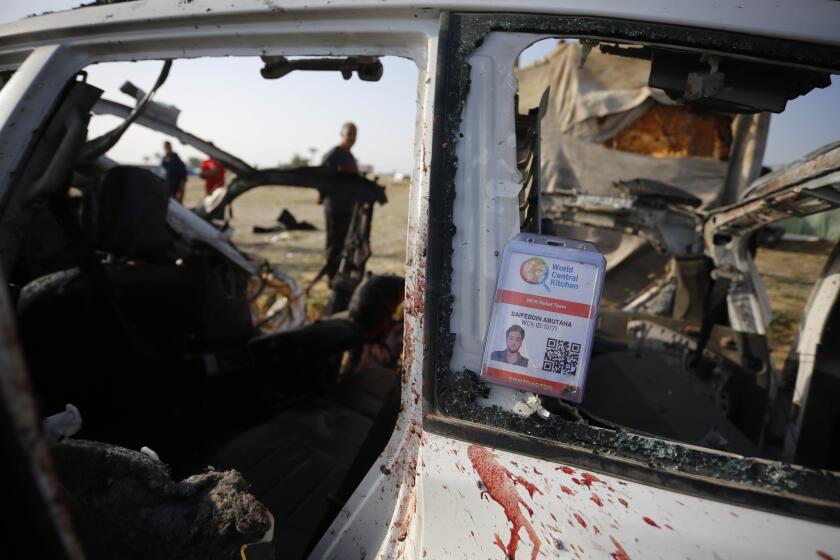Chef José Andrés’ humanitarian aid group, World Central Kitchen, suffered a tragic loss when seven staff members were killed in airstrikes on their convoy in Gaza. The news struck Andrés deeply, as he considered his colleagues to be friends. The group had been working tirelessly to provide food aid to Palestinians in need. The announcement of their suspension of work in Gaza followed the devastating incident. Israel acknowledged responsibility for the strikes, citing it as an unintentional mistake in the midst of war.
The situation in Gaza had escalated due to ongoing conflict, leading to widespread devastation and a critical humanitarian crisis. With Palestinians facing famine and urgent need for aid, Andrés began exploring unconventional methods to deliver food to Gaza. Despite facing logistical challenges, he contemplated using a boat loaded with aid to reach the enclave. The Gaza Strip was under siege, making land deliveries insufficient and airdrops inadequate. Andrés’ determination to find a way to deliver aid to those in need highlighted the urgency of the situation.
Efforts to coordinate with Israeli authorities for safe aid deliveries in Gaza were met with obstacles and limitations. Andrés and his team were determined to find a solution, even considering transporting aid using a barge. The plan seemed daunting, with concerns about offloading aid in Gaza without risking further conflict. Despite the challenges, Andrés remained optimistic, believing that pushing boundaries and showing the possibility of aid delivery could inspire change in established systems.
World Central Kitchen had been actively providing meals to Palestinians in Gaza through various kitchens and community centers. The aid work intensified during Ramadan, a time when food insecurity was particularly acute. The deaths of the aid workers in the airstrikes drew international condemnation and calls for accountability. The incident highlighted the ongoing challenges of distributing aid in a conflict zone, and raised concerns about the safety of humanitarian workers in such volatile environments.
The tragic deaths of the World Central Kitchen staff members added to the mounting criticism Israel was facing over the Gaza war. In the midst of widespread condemnation and demands for accountability, the incident underscored the complex realities of delivering aid in conflict zones. Andrés’ determination to find innovative solutions and his passion for helping those in need shone through, despite the risks involved. The impact of the airstrikes on the aid workers reverberated globally, prompting calls for transparency and justice for the victims.
Amidst the grief and uncertainty following the deadly incident, Andrés reflected on the importance of human connection and solidarity in times of crisis. He emphasized the resilience and dedication of the Palestinians working in the group’s kitchens, highlighting their role in supporting their communities during the toughest of times. Despite the challenges and dangers involved in delivering aid in Gaza, Andrés remained committed to finding ways to help those in need, demonstrating the power of compassion and determination in the face of tragedy and adversity.


